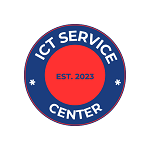Yes, ICT is a product of technology, as it encompasses the use of technology for communication and information processing. ICT relies on the development and application of various technologies to enable the transfer, storage, and access of information.
From telecommunications networks to software applications, ICT leverages technology to facilitate communication and data management. Information and Communication Technology (ICT) is an integral part of modern society, revolutionizing the way we communicate, work, and access information. It encompasses a wide range of technologies, including computers, the internet, telecommunications, and software applications.
ICT plays a crucial role in various sectors, including education, healthcare, business, and government, driving efficiency and innovation. As technology continues to advance, ICT will continue to evolve, shaping the way we interact and access information in the digital age.

Understanding Ict And Technology
Information and Communication Technology (ICT) is intricately connected to technology, but it’s important to understand how the two concepts differ and intersect. The relationship between ICT and technology is symbiotic, with each one relying on and influencing the other. By closely examining the definition and dependence of ICT and technology, we can gain a deeper understanding of their roles in our digital world.
Defining ICT
Information and Communication Technology, commonly known as ICT, refers to the use of digital systems to capture, store, process, and transmit data. It encompasses a wide range of technologies and tools, including computers, software, networks, and other digital communication devices. The primary goal of ICT is to facilitate the efficient exchange of information and support various forms of communication across different platforms.
Defining Technology
Technology encompasses the application of scientific knowledge for practical purposes. It includes the utilization of tools, systems, and techniques to solve problems, improve processes, and create innovative solutions. In the context of ICT, technology serves as the foundation upon which digital systems and communication networks are built, enabling the seamless integration and operation of ICT infrastructure.
ICT And Its Dependence On Technology
ICT heavily depends on technology for its functionality and evolution. The advancements in technology, such as the development of faster processors, enhanced networking protocols, and improved data storage solutions, directly impact the capabilities and performance of ICT systems. Moreover, the continuous innovation in technology drives the evolution of ICT, leading to the creation of more efficient and versatile digital tools for information processing and communication.

Historical Perspectives Of ICT And Technology
Exploring the historical perspectives of ICT and technology offers valuable insights into how these two interconnected fields have evolved over time. Understanding the origins of ICT, the technological advancements that led to its development, and the inseparable interconnection between ICT and technology provides a comprehensive view of the symbiotic relationship between the two.
Origins Of ICT
The origins of ICT can be traced back to the early 20th century when advancements in telecommunication technologies laid the foundation for the convergence of information and communication. The development of telegraphy, telephony, and early computing devices set the stage for the emergence of ICT as a distinct field encompassing both hardware and software elements.
Technological Advancements Leading To ICT
The progression of technology, particularly in the areas of computing, networking, and information storage, played a pivotal role in paving the way for the advent of ICT. From the invention of the transistor and the integrated circuit to the proliferation of the internet and digital communication protocols, each technological leap contributed to the expansion and refinement of ICT capabilities.
Interconnection Between ICT And Technology
The interconnection between ICT and technology is fundamental, as ICT is essentially the application of various technological tools and systems to manage and process information. ICT encompasses a wide array of technologies, including computers, software, networking infrastructure, and telecommunications, all of which are interconnected to enable the efficient flow and manipulation of data and communication.
The Evolution Of ICT As A Result Of Technological Advancements
The Evolution of ICT as a Result of Technological Advancements
Information and Communication Technology (ICT) has undergone significant transformative changes over the years due to the rapid advancements in technology. This has led to the evolution of ICT as a product of technological innovation and progress. Let’s explore the impact of technology on ICT development, the role of innovation in shaping ICT, and adapting to technological advancements in ICT.
Impact Of Technology On ICT Development
The impact of technology on ICT development cannot be overstated. With the advent of modern technologies such as the internet, mobile devices, cloud computing, artificial intelligence, and big data, ICT has experienced a revolutionary shift. These technological advancements have revolutionized the way information is processed, stored, and communicated, leading to the emergence of sophisticated ICT solutions and services. The integration of cutting-edge technologies has propelled the development of ICT infrastructure and systems, enabling seamless communication, data management, and collaboration.
Role Of Innovation In Shaping ICT
Innovation plays a pivotal role in shaping the evolution of ICT. As technology continues to evolve, innovators continuously strive to create novel solutions and applications that enhance the functionality and efficiency of ICT. Through continuous innovation, ICT has witnessed the development of groundbreaking technologies such as 5G networks, IoT (Internet of Things), virtual reality, and augmented reality. These innovations have expanded the capabilities of ICT, empowering organizations and individuals to leverage advanced tools and platforms for communication, data analysis, and digital experiences.
Adapting To Technological Advancements In ICT
Adapting to technological advancements is imperative for the sustainable growth of ICT. As new technologies emerge, ICT professionals and organizations must ensure they stay ahead by embracing the latest trends and tools. This involves continuous learning, skill development, and the integration of state-of-the-art technologies into existing ICT systems. By staying agile and adaptable, ICT can leverage technological advancements to drive digital transformation, improve operational efficiency, and meet the evolving demands of today’s digital landscape.
Current State Of ICT: Its Ties To Technological Progress
The current state of Information and Communication Technology (ICT) is intricately intertwined with the rapid progress of technology. ICT, being a product of technological advancements, continues to evolve alongside the latest innovations, shaping the way we communicate, gather and disseminate information, and conduct business. In this blog post, we’ll delve into the integration of latest technologies in ICT, the influence of technology on ICT solutions, and the future prospects of technology shaping ICT.
Integration Of Latest Technologies In ICT
The integration of latest technologies in ICT has revolutionized the way organizations operate and individuals interact. From leveraging cloud computing and big data analytics to implementing artificial intelligence and Internet of Things (IoT) solutions, ICT is embracing cutting-edge technologies to enhance efficiency, productivity, and decision-making processes.
Technological Influence On ICT Solutions
Technological influence on ICT solutions has led to the development of advanced communication channels, seamless connectivity, and innovative software applications. The convergence of mobile technology, social media platforms, and virtual collaboration tools has reshaped the way we engage with information and communicate across the globe.
Future Prospects Of Technology Shaping ICT
The future prospects of technology shaping ICT are promising, with emerging trends such as 5G networks, blockchain technology, and quantum computing poised to further redefine the capabilities of ICT. As technology continues to advance, we can anticipate more sophisticated ICT solutions that will drive digital transformation and empower businesses and individuals with enhanced capabilities.
The Interplay Of ICT And Emerging Technologies
Utilization Of New Technologies In ICT
Information and Communication Technology (ICT) has always been closely intertwined with the utilization of new technologies, constantly evolving to adapt to the latest technological advancements. Organizations across various industries are leveraging cutting-edge technologies to enhance their ICT capabilities, enabling streamlined communication, data management, and efficient business operations.
Adapting ICT To Emerging Technologies
In the rapidly changing landscape of technology, the adaptation of ICT to emerging technologies is crucial for sustainable growth. As new innovations continue to emerge, businesses and individuals alike are embracing advanced ICT solutions to stay ahead of the curve. This calls for agile and flexible ICT frameworks that can seamlessly integrate with the latest technological breakthroughs, ensuring optimal performance and relevance in the digital age.
The Symbiotic Relationship Between ICT And Technological Innovation
The symbiotic relationship between ICT and technological innovation is a cornerstone of progress in the digital era. Technological advancements drive the evolution of ICT, while ICT, in turn, fuels the adoption and implementation of cutting-edge technologies. This reciprocity creates a dynamic ecosystem where both ICT and emerging technologies thrive, fostering an environment of continuous innovation and enhanced digital capabilities.
Frequently Asked Questions On Is ICT A Product Of Technology?
Is Ict The Result Of Technological Advancements?
ICT, or Information and Communication Technology, is indeed a product of technological advancements. It encompasses the use of modern technology to access, process, and share information. It includes communication devices, applications, and networks that aid in information management and dissemination.
How Does Technology Contribute To The Evolution Of ICT ?
Innovation and progress in technology greatly contribute to the evolution of ICT. Advancements in hardware, software, networking, and communication technologies have paved the way for the development of more sophisticated and efficient ICT systems, enabling greater access to information and improved communication capabilities.
What Role Does Technology Play In Shaping ICT Practices?
Technology plays a pivotal role in shaping ICT practices by enabling the creation and utilization of various tools and platforms. It facilitates the integration of diverse communication components, such as data transmission, storage, and retrieval, ultimately enhancing the overall efficiency and effectiveness of ICT applications and services.
Conclusion
In essence, ICT is both a product and a driver of technological advancements. Its integration in various sectors has revolutionized the way we live and work. As we continue to witness rapid changes in technology, it’s evident that ICT will play a crucial role in shaping future innovations and developments.

